Apple Sues Accessory Makers for Selling Fake Products on Amazon, Groupon.
Claiming that genuine Apple accessories like Lightning-to-USB cables and USB power adapters sold on Amazon and Groupon are 90 percent fake, the Cupertino-based tech giant has filed a lawsuit against US-based Mobile Star LLC, accusing it of selling counterfeit accessories online.
“Almost nine out of 10 Apple-branded products the iPhone maker bought on Amazon were fakes,” according to the trademark infringement case reported by Patently Apple on Thursday.
Apple seeks up to $150,000 per copyright violation and $2 million (roughly Rs. 13 crores) per trademark infringement, believing that these counterfeit products could lead to fires and are, therefore, a risk to the public.
“Consumers, relying on Amazon.com’s reputation, have no reason to suspect the power products they purchased from Amazon.com are anything but genuine. Consumers are likewise unaware that the counterfeit Apple products that Amazon.com sourced from Mobile Star have not been safety certified or properly constructed… and pose a significant risk of overheating, fire, and electrical shock,” the lawsuit read.
Lear More
Mahindra & Mahindra Raids Auto Part Makers to Counter Fake Products.
Mahindra & Mahindra, country’s leading utility vehicle manufacturer, said it conducted raids across six auto spare part makers and sales outlets in the country, to counter the ‘ever-growing’ threat of counterfeit products.
The company seized more than a thousand items from raids conducted jointly with the police at shops, traders, packing and manufacturing units in northern India, Mahindra said in a statement on Thursday.
The parts most commonly duplicated include air filters, oil filters, pressure plates and clutch plates, Mahindra said. Counterfeit packaging and labels were also found.
“The biggest concern is safety, since counterfeit parts can wreak havoc in a vehicle, from braking failure to triggering a fire,” said Hemant Sikka, chief purchase officer, automotive and farm equipment at Mahindra.
http://auto.ndtv.com/news/mahindra-mahindra-raids-auto-part-makers-to-counter-fake-products-735717
Lear MorePolice uncover illegal tobacco farm in southern NSW worth over $11m.
TOBACCO plants worth more than $11 million have been seized in a massive bust in the state’s south.
The Australian Taxation Office and police raided a tobacco farm in Callemondah Rd, Shannons Flat, discovering 92,000 tobacco plants, more than two tonnes of tobacco leaves, $15,000 in cash, a shot gun and ammunition.
The estimated value of the excise avoided on the tobacco seizure about 40km northwest of Cooma is more than $11.77 million.
Monaro Police and ATO officers raided the property at 9.30am yesterday.
No arrests have been made but police said the investigation into this “significant seizure” continues.
The raid follows a tobacco seizure earlier this week in Victoria, where more than 15 acres of tobacco plants were seized at a property in Macorna, near Kerang.
Lear More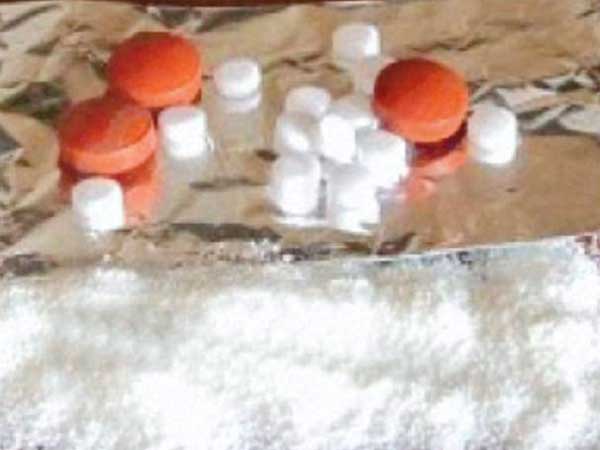
Nigerian arrested for drug smuggling.
NCB sleuths have arrested a Nigerian for allegedly trying to smuggle party drugs worth Rs 3 lakh from here to New Zealand using a postal courier.
The Narcotics Control Bureau (NCB) swung into action after a courier agency informed it few days back about a suspect parcel booked to the Kiwi nation, officials said. The sleuths soon landed at the courier office and recovered 300gms of Amphetamine (party drugs) from the said parcel and deployed their surveillance on the man who booked it. While the consignor details like address and other vitals on the parcel were fake, the mobile number was valid and it was put under surveillance.
http://www.oneindia.com/india/nigerian-arrested-drug-smuggling-2282586.html
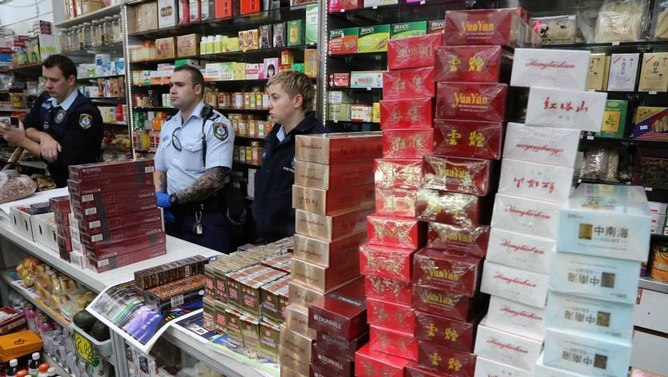
Illicit tobacco imports ripping off Aussie taxpayers of at least $640 million
TAXPAYERS have been ripped off by at least $640 million because of illicit tobacco shipped by criminal gangs and dodgy importers in the last five years alone.
That figure is the amount of tax that should have been paid on illegally imported tobacco — almost entirely shipped as sea cargo — seized and destroyed by border authorities.
Immigration Minister Peter Dutton has vowed to crack down on the trade and put a stop to organised criminal syndicates eyeing Australia’s lucrative market.
“Illicit tobacco smugglers are ripping off taxpayers and putting cheap cigarettes into the hands of young kids and we are doing all we can to stamp them out,” Mr. Dutton said.
Lear More
Vaporizer manufacturer, Grenco Science, awarded $47 million in damages from fake counterfeits
Counterfeit products run rampant in almost all categories of commerce. Clothing, electronics, you name it and it’s guaranteed that someone is selling a fake version of it. Whether it’s straight-up counterfeiting or the unauthorized use of intellectual property and patents, people will go to great lengths to make a buck off of the unsuspecting or uneducated.
This also holds true for vaporizers, apparently, with Grenco Science, creator of the G Pen and other devices, being one of the latest victims of mass counterfeit products being sold under the guise of their brand. While counterfeit products are bad for any brand, when it comes to something like vaporizers, the cheap products used in the counterfeits can put a huge dent into the validity and public perception of the real company.
Many of these counterfeit vaporizers use cheap, poorly manufactured batteries. Not only will these batteries not last long and are prone to not working in the first place, but it opens up the possibility of danger to the user that comes with cheap batteries. It’s just bad news all around, to be honest.
https://knowtechie.com/vaporizer-manufacturer-grenco-science-awarded-47-million-in-damages/
Lear More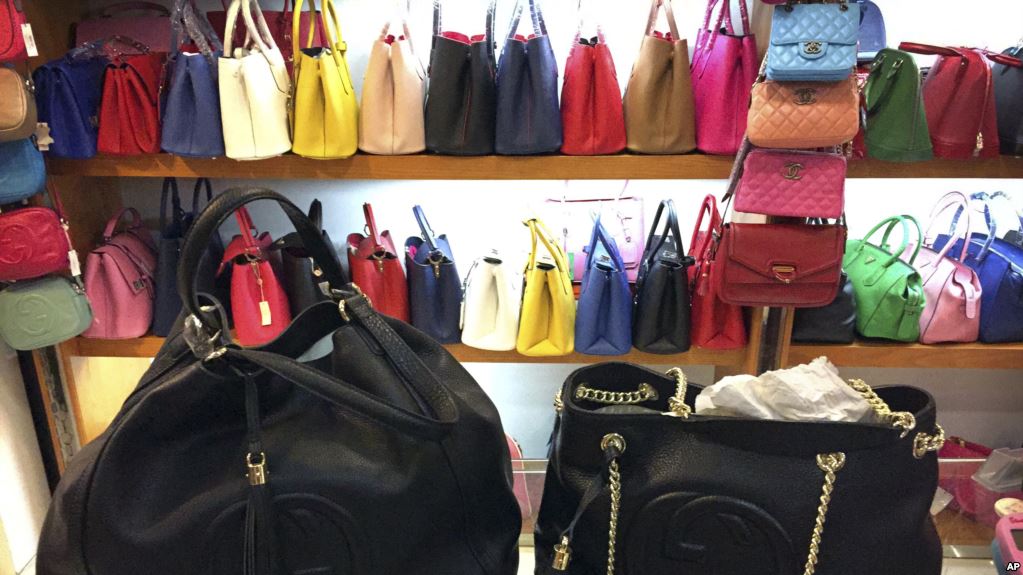
Report: Sales of Counterfeit Reproductions Set to Increase Worldwide
A new report predicts a rise in counterfeiting and pirated goods over the next ten years.
The report says China has been at the center of copying goods, from clothes to electronic devices, and medicines to beauty products.
It says governments and businesses are working to stop the illegal and unapproved copying of products, and protect companies and jobs.
The International Trademark Association and the International Chamber of Commerce published the report in February. It estimated the value of counterfeiting and piracy worldwide could reach $2.3 trillion by 2022. In 2015, the value was $1.7 trillion.
The research company Frontier Economics prepared the report. It said social, investment and criminal enforcement costs could increase the total cost of counterfeiting and piracy to $4.2 trillion. It said that would put about 5.4 million jobs at risk.
Lear More
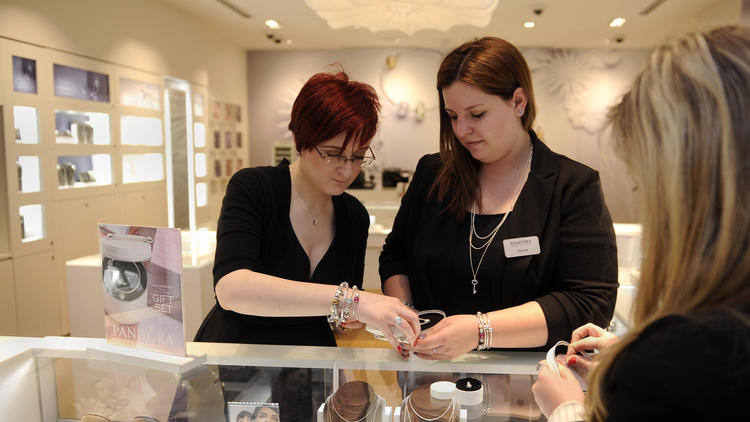
Fonterra introduces traceability technology to fake-proof its infant formula brand.
Fonterra is using traceability technology so shoppers can instantly check the authenticity of infant formula products while they are still on store shelfs.
Quick Read (QR) codes are initially on the cans of the dairy co-operative’s infant formula brand Anmum at New Zealand stores and will eventually help prevent fraud and counterfeiting overseas.
Each can carries a unique QR code that when scanned using a mobile device, connects infant formula buyers to a webpage with information and a batch number verifying that it is authentic.
Chinese shoppers trust and are prepared to pay more for New Zealand infant formula after contamination scares and scandals, but fake infant formula cans were found last year with ties to counterfeit rings.
Consumers can also scan cans at any stage after they have bought it to get up to date status information about the product.
The technology showed consumers where and when the product was manufactured, its expiry date was and whether it was authentic, Fonterra trust in source general manager Tim Kirk said.
Lear More
Dangers posed by fake pesticides
ISLAMABAD: It is a great tragedy that fake products and documents have made their way into all domains and disciplines. Everything ranging from edible goods to pharma products is found to be fake. I wish to warn readers about the proliferation of fake fertilizers, unhealthy seeds, fake pesticides, herbicides, insecticides, among other agri-inputs, in out country. These pose a great danger to the fertility of the soil, the environment, agricultural production, health of the growers and agri-product users in the province of Sindh. Numerous crops are potentially damaged or destroyed throughout the province because of these cheap counterfeit substances used, coupled with severe shortage of water.
The influx of fake chemicals is harming people and the rural economy. Farmers in the province put their livelihoods in jeopardy if they buy something that is not the legitimate product. But who cares in the land of the pure to purify the impure? We must penalise such manufacturers and their dealers while raising awareness about the fake chemicals and the hazards they pose.
https://tribune.com.pk/story/1377669/dangers-posed-fake-pesticides/
Lear More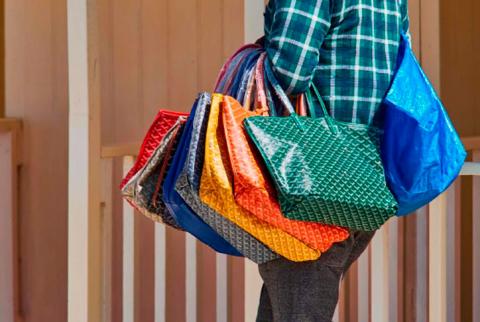
Antiquated EU regulation obstacle to effective fight against counterfeit and pirated products industry, revealed EESC hearing on 6 April.
The counterfeit goods industry is detrimental to jobs and growth in Europe and deprives governments of billions in tax revenues and threatens health and security of EU workers and citizens. Nevertheless, imports of fake goods have even doubled worldwide within 10 years due to digital trade. Now it is high time for Europe’s legal framework to also arrive in the 21stcentury. The European Commission and the Member States urgently need to adapt their legal frameworks and ensure the necessary controls and market surveillance. Consumers need to be better informed, which is even a specific fundamental consumer right codified in Article 169 TFEU. Both the private and the public sectors need to cooperate in the fight against product piracy.
http://www.eesc.europa.eu/?i=portal.en.press-releases.42100
Lear More


